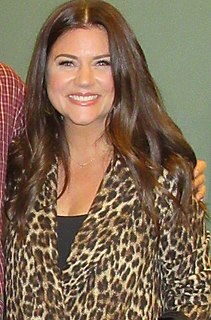A Quote by Terry McMillan
The best rush in the world is getting something at 80 percent off.
Related Quotes
Economists often talk about the 80/20 Principle, which is the idea that in any situation roughly 80 percent of the “work” will be done by 20 percent of the participants. In most societies, 20 percent of criminals commit 80 percent of crimes. Twenty percent of motorists cause 80 percent of all accidents. Twenty percent of beer drinkers drink 80 percent of all beer. When it comes to epidemics, though, this disproportionality becomes even more extreme: a tiny percentage of people do the majority of the work.
I've always thought of myself as an 80 percenter. I like to throw myself passionately into a sport or activity until I reach about an 80 percent proficiency level. To go beyond that requires an obsession that doesn't appeal to me. Once I reach 80 percent level I like to go off and do something totally different; that probably explains the diversity of the Patagonia product like - and why our versatile, multifaceted clothes are the most successful.
It's worse than slave trade because what is being traded is the very knowledge that makes survival possible for 80 percent of the people of this world. These 80 percent live on the biodiversity and the knowledge they have evolved as part of a rich collective heritage involving the use of seeds for growing crops and medicinal plants for healing.
I read something in the paper that really confused me the other day. It said that 80 percent of the people in New York are minorities. Shouldn't you not call them minorities when they get to be 80 percent of the population? That's a very white attitude, don't you think? I mean, you could take a white guy to Africa and he'd be like 'Look at all the minorities around here! I'm the only majority.'
The top 1 percent have the best houses, the best educations, the best doctors, and the best lifestyles, but there is one thing that money doesn't seem to have bought: an understanding that their fate is bound up with how the other 99 percent live. Throughout history, this is something that the top 1 percent eventually do learn. Too late.
I'm not expecting a big sell-off but I do think that if we don't have a move toward economic growth and policies that will promote economic growth and get us out of this 2 percent world - we really need to see 4 percent, 5 percent - to see jobs created, and if we don't see that longer-term, yeah the market will sell-off...[but] I do think things are getting better. It's just been very slow.
Studies show that over 80 percent of Americans do not have their dream job. If more knew how to build organizations that inspire, we could live in a world in which that statistic was the reverse - a world in which over 80 percent of people loved their jobs. People who love going to work are more productive and more creative. They go home happier and have happier families. They treat their colleagues and clients and customers better. Inspired employees make for stronger companies and stronger economies.
I know Teddy Kennedy had fun at the Democratic convention when he said that I said that trees and vegetation caused 80 percent of the air pollution in this country. ... Well, now he was a little wrong about what I said. I didn't say 80 percent. I said 92 percent-93 percent, pardon me. And I didn't say air pollution, I said oxides of nitrogen. Growing and decaying vegetation in this land are responsible for 93 percent of the oxides of nitrogen. ... If we are totally successful and can eliminate all the manmade oxides of nitrogen, we'll still have 93 percent as much as we have in the air today.







































